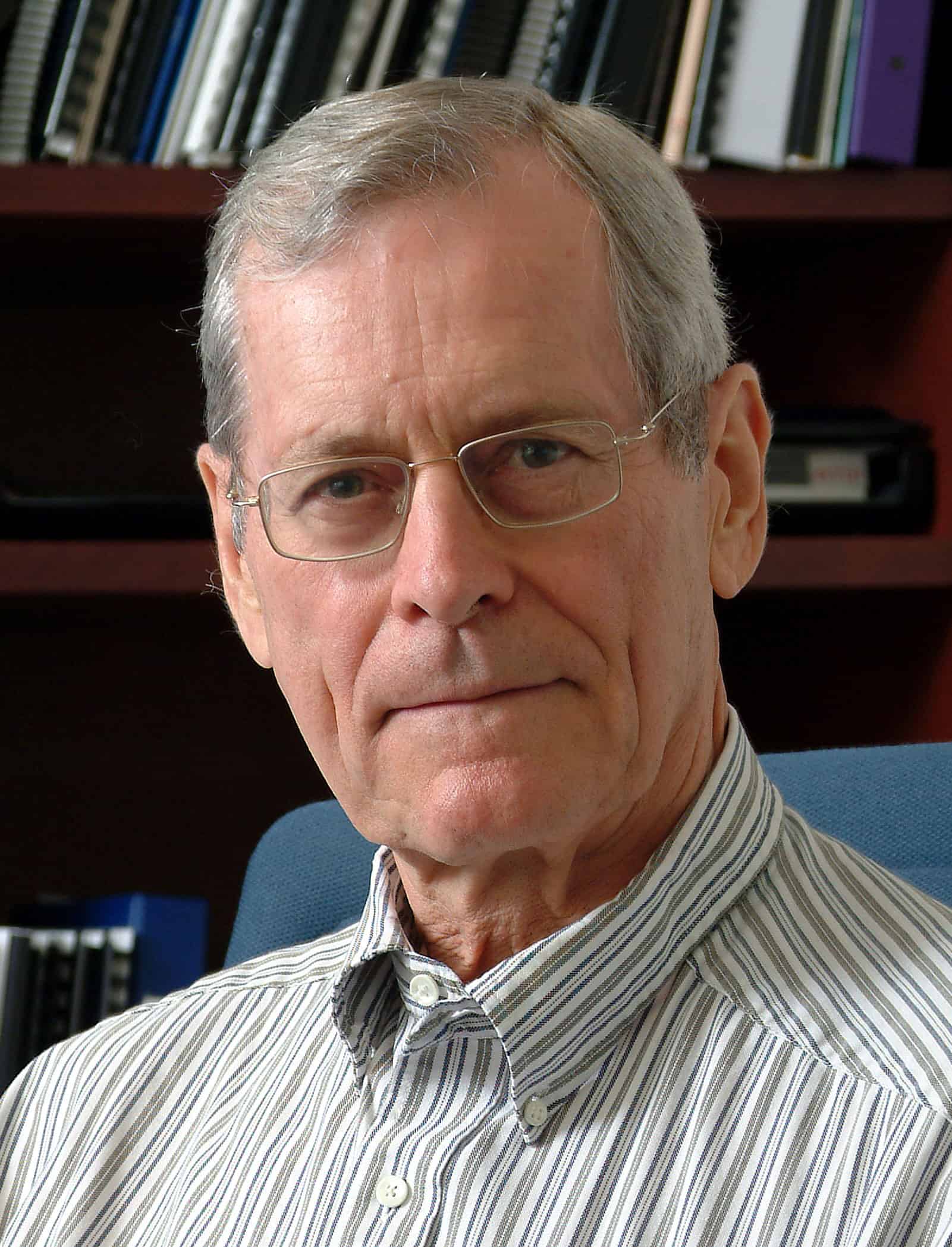Today, his pioneering work is taught around the world. His research has revolutionized our approach to how me might one day cure diseases like multiple sclerosis, heart disease, and leukemia, and it has catalyzed new and exciting investigations in regenerative medicine. He has been awarded countless accolades and has helped create an entirely new field of inquiry.
Dr. James Till, one of the founding fathers of stem cell research, comes from a very humble background, and his path to a life in research was anything but direct.
Till grew up working on a farm in Alberta. He spent his childhood labouring during harvest seasons, from dawn till dusk, until a scholarship to the University of Saskatchewan changed his life. Once at the university, however, Till didn’t know how to proceed.
“I wasn’t sure what I wanted to do. I thought that, after… first year, I’d have a clearer view. During that first year, I considered a wide range of options, from pre-medicine to political economy,” explains Till.
He navigated around his uncertainty by choosing a variety of challenging and interesting courses. While pursuing a degree in physics, Till worked at a medical physics lab for a summer and found that he “liked the combination of the brain-challenging aspects of physics with the major practical need for improved cancer treatments.”
Following this experience, Till studied biophysics and biology, before ultimately choosing to focus on stem cell research with Dr. Ernest McCulloch.
“If you’re not sure what you want to do, put off any specialization as long as possible,” Till advises students. “You are going to spend much of your life working. If you are able to enjoy your work, you can spend the time much more fruitfully, for yourself and for others. I’ve always done research that I’ve found to be interesting. When I was younger, I would say that I liked doing research so much that I’d do it without pay, provided that I could find another way to support my family and myself.”
Nonetheless, Till cautions that a narrow focus on research has its drawbacks.
“Research can be very time-consuming. Less time is left for family, friends, contributions to one’s community, and hobbies. I’ve had the good fortune to have very supportive family members, loyal friends, and opportunities to work with non-profit organizations. I don’t regret the huge amount of time that I’ve spent on research, but I do regret some of the consequences of that choice,” he says.
Throughout both his research and his life, Till has maintained a strong intellectual rigour, citing his greatest challenge as “my own ignorance and how best to overcome it. There’s no real substitute for persistence and hard work. One cannot learn everything, so one must be selective about what one learns.”
“I cannot overstate the importance of well-chosen mentors,” he adds. “They need to be people who are respected in their fields of study and who take the mentorship role very seriously. They must earn your respect, and you must earn theirs.”
Till has served as a mentor and a teacher, helping many students evolve into leading stem cell researchers.
Despite having established the revolutionary field of stem cell experimentation, lately Till has shifted to studying very different topics like the Internet. As he puts it, “[Whenever research has] ceased to be as interesting to me, including a desire not to compete with my former students… I [change] fields.”
Today, Till is still heavily involved in Internet research and is a strong proponent of open access publications. When asked about his thoughts on how students can live fulfilling lives, Till stresses that there is no single path one can take.
“I don’t think that there’s a single way to live a long and fulfilling life. I recall a conversation, a few years ago, with a fellow curler. At age 97, he was still actively participating in the game. A noteworthy feature of his long life is that he had survived the Second World War after being the tail-gunner on a bomber. I asked him if his bomber had ever been hit by gunfire. He said, ‘Yes, often.’ I then asked him how he had managed to live such a long and fulfilling life. He replied, ‘I’ve been lucky.’ Of course, one cannot choose to be lucky. All one can do is to try hard to live as fulfilling [a] life as possible, given one’s values and abilities.”
Till continues to stay involved in research well into retirement, displaying his ceaseless tenacity for research which acts as an inspiration to younger generations. The scientific community will be forever grateful to Till for his contributions to stem cell research and for the many millions of lives he has and will continue to save.


